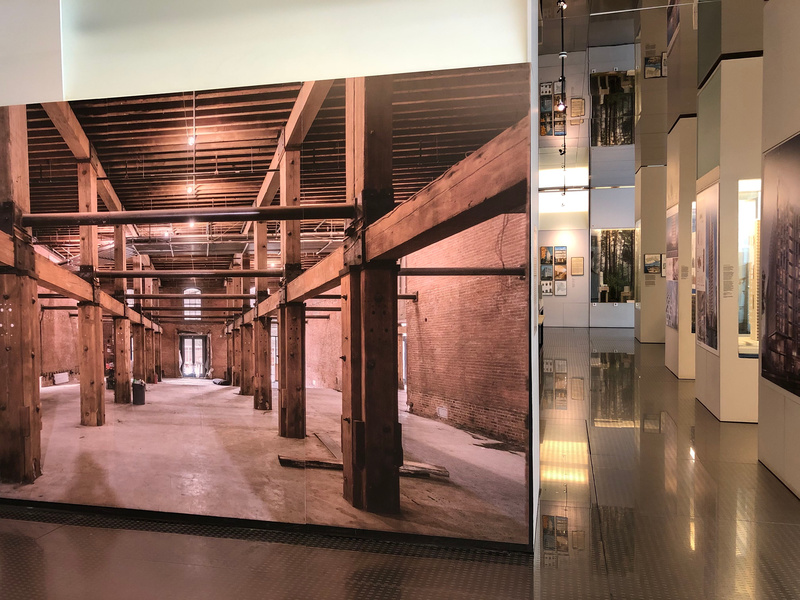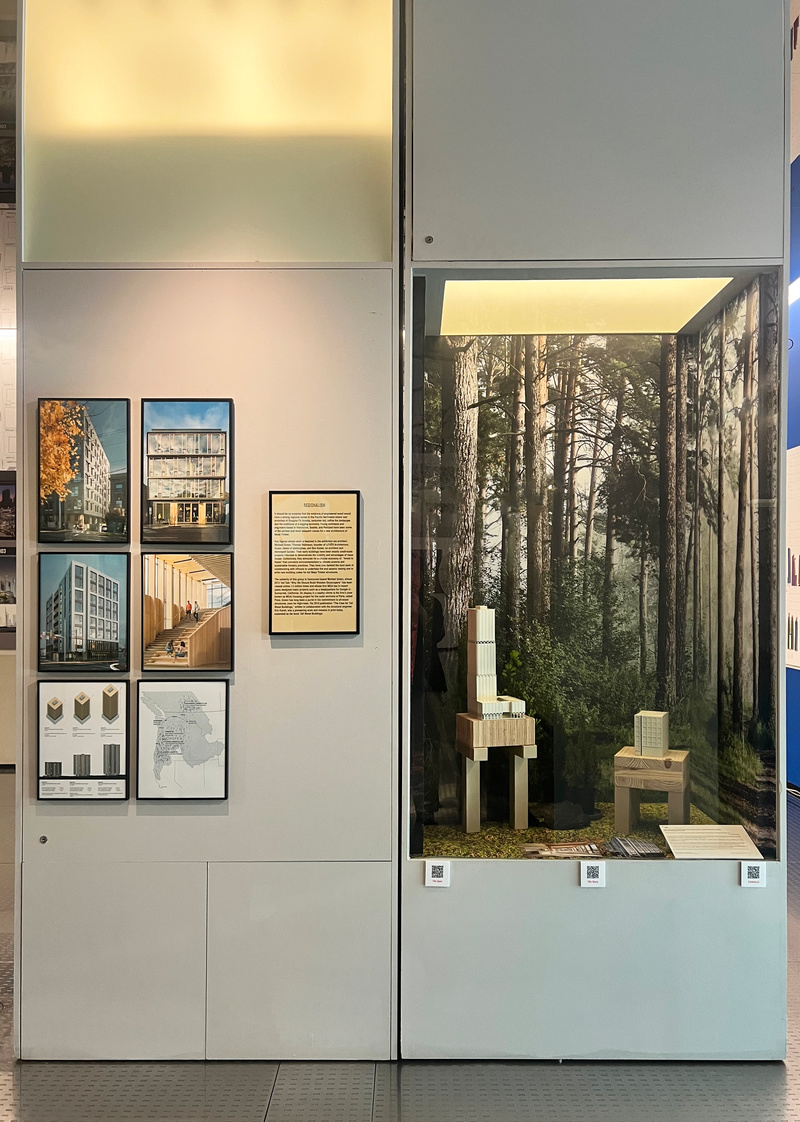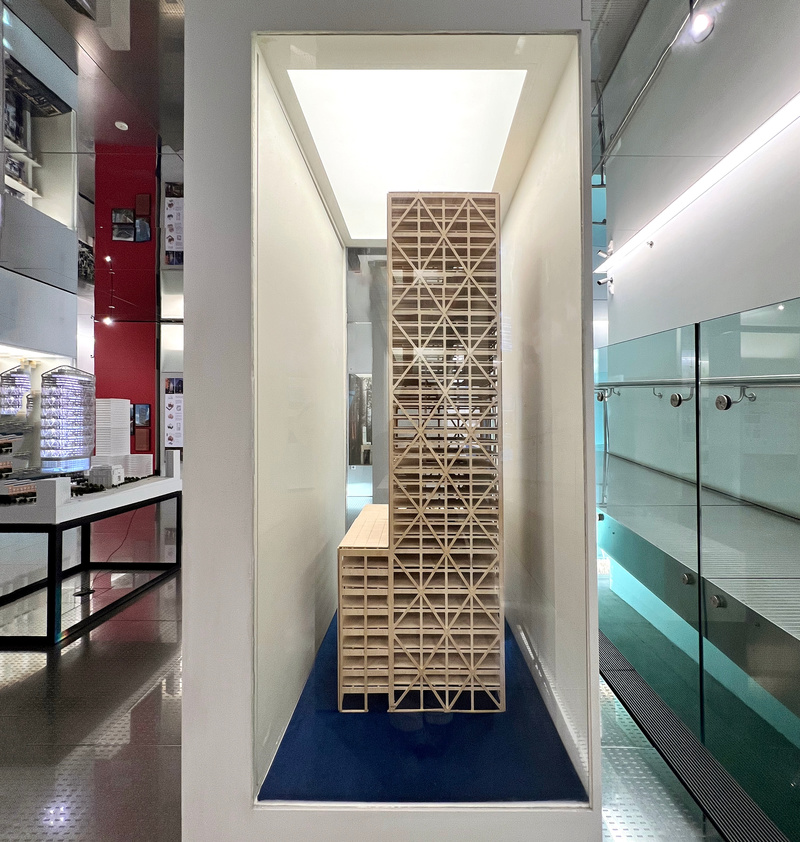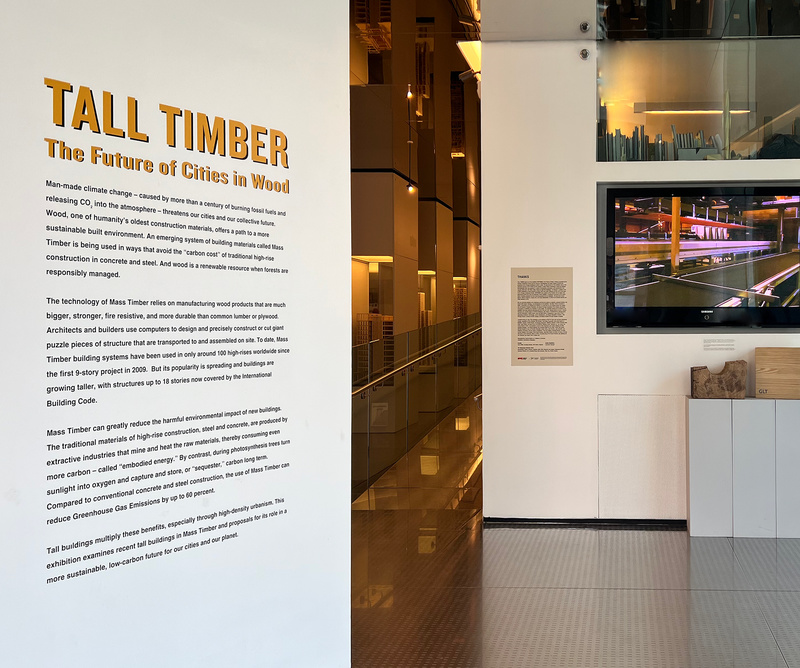
See Models of Wood Skyscrapers at a New Skyscraper Museum Exhibit
Is the future of cities wooden? A new exhibit at the Skyscraper Museum, Tall Timbers, explores the impact of tall buildings made of wood!

Can you really build a skyscraper out of wood? Though we typically think of steel, concrete, and glass as the building blocks of a modern city, TALL TIMBER: The Future of Cities in Wood, a new exhibit at the Skyscraper Museum, examines how one of the oldest building materials in the world can help build a greener future. The exhibit explores the history, challenges, and benefits of using Mass Timber on tall buildings through architectural models, material samples, videos, drawings, and informative displays.
Tall Timber starts with a look back at how wood has historically been used in construction. While wood is an ancient building material derived directly from nature, Mass Timber is an engineered product that is fairly new. The first Mass Timber buildings taller than eight stories only popped up in North America in 2014.
At the museum, you can compare timber samples from the past and today. A piece of pine from a column of the 1891 Terminal Warehouse in Manhattan is on display along with pieces of modern glulam (GLT) and Cross Laminated Timber (CLT). A video shows how these layered wood materials are crafted in a timber factory.

GLT and CLT are just two of the many different types of Mass Timber made today. Engineered Mass Timber is created by joining pieces of standard milled lumber with wooden dowels, nails, or adhesives to create larger, stronger, layered boards, panels, and beams. Research into this technology started and was developed in Austria in the 1990s.
After learning all about the process of Mass Timber creation, guests can see it put to use. A wall of drawings and photographs shows Mass Timber buildings across the globe, from Stadthaus, a London apartment building designed by Mass Timber pioneer Andrew Waugh of Waugh Thistleton, to Ascent, a 25-story apartment and mixed-use tower in Milwaukee, Wisconsin which has held the title for tallest Mass Timber building in the world by vertical height since it was completed in 2022.

Architectural models on display from noted architecture firms such as LEVER, SHoP, and Gensler show the potential future of Mass Timber construction. One model is of Atlassian Central, a 42-story hybrid steel, concrete, and Mass Timber tower now under construction in Sydney, Australia. Once complete, it will become the world’s tallest (largely) Mass Timber building.
The climate impact of whatever materials we use to construct our buildings can not be ignored. TALL TIMBER takes a look at Mass Timber’s impact on the globe by examining its “carbon cost,” or the energy used in its production. While steel and concrete have a high “carbon cost,” wood helps to sequester carbon, as trees store it in their trunks. Researchers have calculated using wood instead of concrete or steel for commercial buildings could cut Global Greenhouse gases by an average of 60 percent.

Worldwide, only around 100 high-rises (9+ stories) currently use Mass Timber building systems. Historically, strict building and fire codes and supply challenges have hindered Mass Timber construction. The exhibit dives into these obstacles and explores how they are changing. Today, The International Building Code (IBC) allows for Mass Timber buildings of 18 stories. New fire-resistive technology helps to ensure the safety of timber construction. A charred column of GLT subjected to a 3-hour fire resistance test is on display as evidence of these efforts. Sustainably managed forests can provide a continuous supply of wood while also sequestering CO2 at a faster rate with young trees.

In a review of TALL TIMBER for Architectural Record, Joann Gonchar says the show “packs in a lot of information, providing an essential overview of the still-emerging construction system and its possibilities.” The information is presented in ways both tactile, cerebral, and visual, creating a comprehensive view of a future where the benefits of Mass Timber are multiplied by its use in tall buildings. The exhibit is on view through November 2, 2024.
Next, check out 10 Eco-Friendly Innovative Sites in Manhattan

